Free to Choose Episode Rating Graph
Mar 1980 - present
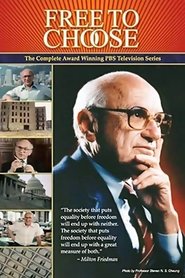
Mar 1980 - present
6.2

| E1 | E2 | E3 | E4 | E5 | E6 | E7 | E8 | E9 | E10 | |
|---|---|---|---|---|---|---|---|---|---|---|
| S1 | ||||||||||
| S2 |
Browse episode ratings trends for Free to Choose. Simply click on the interactive rating graph to explore the best and worst of Free to Choose's 15 episodes.
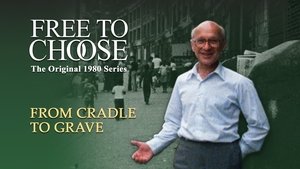
S1 Ep4
9.5
The welfare state arises from the attempt to do good with other people's money. Such attempts always fail because: Nobody spends somebody else's money as carefully as his own. Welfare is supply driven. Those spending the money use force to collect it and to insure those receiving it use it for "right" purposes. Good intentions are corrupted by bad means. Friedman visits U.S. and Britain.
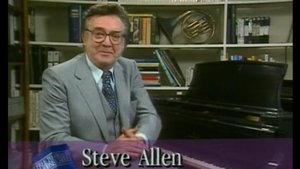
S2 Ep5
9.0
2nd Feb 1990
"The society that puts equality before freedom will end up with neither. The society that puts freedom before equality will end up with a great measure of both." The desire to have more, to have what those who are better off have, is a powerful emotion. Friedman points out that the most governments can do is provide all citizens with equal opportunity to use their time and abilities as they best see fit, in pursuit of a better life. Introduction by Steve Allen.
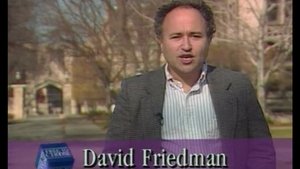
S2 Ep4
9.0
26th Jan 1990
In almost every case, giving individuals the power to choose, to set their own course, will lead to better results than centrally planned activity. That applies to schooling and every other activity in a modern society. Introduction by David Friedman.
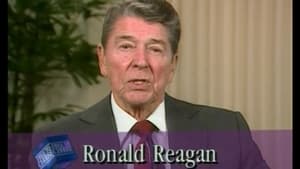
S2 Ep3
9.0
19th Jan 1990
Milton says "Everybody knows what needs to be done. The property that is now in the hands of the state, needs to be gotten into the hands of private people who can use it in accordance with their own interests and values." Eastern Europe has observed the history of free markets in the United States and wants to copy our success. Ironically, we seem unable to turn away from the temptations of socialism despite its long history of bankrupting economies. Introduction by Ronald Reagan.
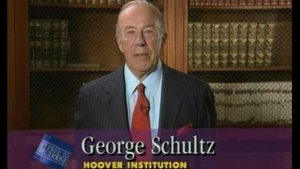
S2 Ep2
9.0
12th Jan 1990
Government planning and detailed control of economic activity lessens productive innovation, and consumer choice. Good, better, best, are replaced by "approved" or "authorized." Friedman shows how "established" industries or methods, seek government protection or subsidization in their attempts to stop or limit product improvements which they don't control. Friedman visits India, Japan and U.S. Introduction by George Shultz.
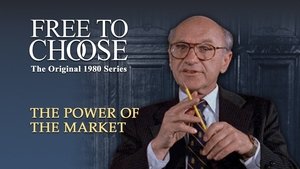
S1 Ep1
8.2
3rd Mar 1980
Dr. Friedman visits and narrates a number of success and failure stories in history, which he attributes to capitalism or the lack thereof.
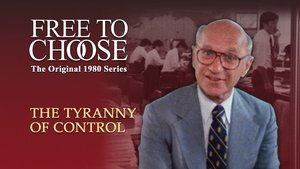
S1 Ep2
8.5
Government planning and detailed control of economic activity lessens productive innovation, and consumer choice. Good, better, best, are replaced by "approved" or "authorized." Friedman shows how "established" industries or methods, seek government protection or subsidization in their attempts to stop or limit product improvements which they don't control. Friedman visits India, Japan and U.S.
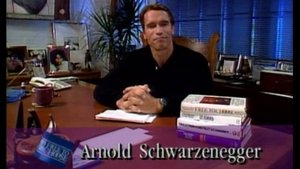
S2 Ep1
8.5
5th Jan 1990
America's freedom and prosperity derive from the combination of the idea of human liberty in America's Declaration of Independence with the idea of economic freedom in Adam Smith's Wealth of Nations. Friedman explains how markets and voluntary exchange organize activity and enable people to improve their lives. He also explains the price system. Friedman visits Hong Kong, U.S. and Scotland. Introduction by Arnold Schwarzenegger.
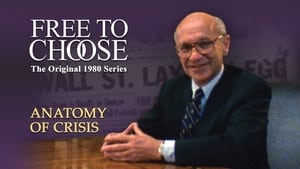
S1 Ep3
8.8
The Great Depression has been popularly viewed as a failure of capitalism. The stock market crash, the failure of the Bank of the United States, loss of personal savings, were visible symbols supporting this belief. As Friedman explains, the real cause was the unseen failure of government policy and action. Yet this crisis resulting from government failure leads to decades of government expansion.
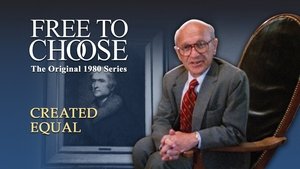
S1 Ep5
9.0
The Declaration of Independence says, "all men are created equal." Friedman explains that this did not mean all persons should or will have equal talents or income. Equal opportunity to better one's self, and the right to personally benefit from the gains realized, are consistent with freedom. Equality of results requires force. Taking from some to give to others destroys freedom and removes the incentive for creating new wealth. Friedman visits India, U.S. and Britain.

S1 Ep1
8.2
3rd Mar 1980
Dr. Friedman visits and narrates a number of success and failure stories in history, which he attributes to capitalism or the lack thereof.

S1 Ep2
8.5
Government planning and detailed control of economic activity lessens productive innovation, and consumer choice. Good, better, best, are replaced by "approved" or "authorized." Friedman shows how "established" industries or methods, seek government protection or subsidization in their attempts to stop or limit product improvements which they don't control. Friedman visits India, Japan and U.S.

S1 Ep3
8.8
The Great Depression has been popularly viewed as a failure of capitalism. The stock market crash, the failure of the Bank of the United States, loss of personal savings, were visible symbols supporting this belief. As Friedman explains, the real cause was the unseen failure of government policy and action. Yet this crisis resulting from government failure leads to decades of government expansion.

S1 Ep4
9.5
The welfare state arises from the attempt to do good with other people's money. Such attempts always fail because: Nobody spends somebody else's money as carefully as his own. Welfare is supply driven. Those spending the money use force to collect it and to insure those receiving it use it for "right" purposes. Good intentions are corrupted by bad means. Friedman visits U.S. and Britain.

S1 Ep5
9.0
The Declaration of Independence says, "all men are created equal." Friedman explains that this did not mean all persons should or will have equal talents or income. Equal opportunity to better one's self, and the right to personally benefit from the gains realized, are consistent with freedom. Equality of results requires force. Taking from some to give to others destroys freedom and removes the incentive for creating new wealth. Friedman visits India, U.S. and Britain.
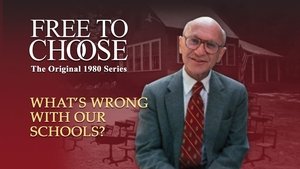
S1 Ep6
9.0
Parental choice and parental responsibility in the education of children is the U.S. tradition and is consistent with a free society. Centralized government control has eroded freedom and adversely affected the quality of education. The poor help pay for education for the future rich. Friedman has long advocated using vouchers to solve the problem. He explains why. Friedman visits U.S. and Britain.
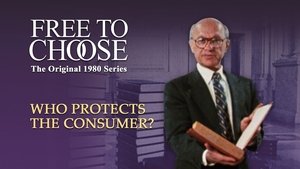
S1 Ep7
9.0
Various government agencies have been created on the claim that they will protect the consumer. These agencies restrict freedom, stifle beneficial innovation, and become agents for the industries or groups they are intended to regulate. Friedman explains how the apparent chaos of the market place, the competition of many suppliers for business, is the best protection of consumer interests.
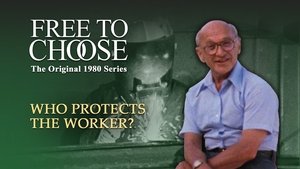
S1 Ep8
9.0
Unions sometimes protect some workers - their members - but usually at the expense of other workers. Government protects its employees and special groups of workers at the expense of other workers. Both unions and government restrict freedom. Friedman explains how the competition of employers for the talents of workers leads to the highest wages and best working conditions.
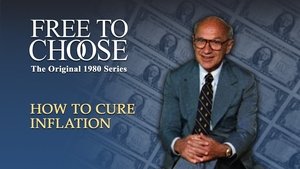
S1 Ep9
9.0
Inflation results when the amount of money printed or coined increases faster than the creation of new goods and services. Money is a "token" of the wealth of a nation. If more tokens are created than new wealth, it takes more tokens to buy the same goods. Friedman explains why politicians like inflation, and why wage and price controls are not solutions to the problem. Friedman visits Japan, U.S. and Britain.
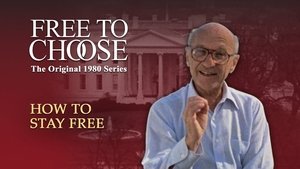
S1 Ep10
9.0
Democracies have only recently been considered desirable. Historically, it was feared that democracies always self destruct when citizens, forgetting that you cannot remove want and misery through legislation, insist on government actions that physically and morally bankrupt their nation. Friedman explains why the United States has so far avoided this outcome and how we can continue to do so. This program includes an interview of Dr. Friedman by Lawrence E. Spivak.
Loading...
The first episode of Free to Choose aired on March 03, 1980.
The last episode of Free to Choose aired on February 02, 1990.
There are 15 episodes of Free to Choose.
There are 2 seasons of Free to Choose.
Yes.
Free to Choose is set to return for future episodes.